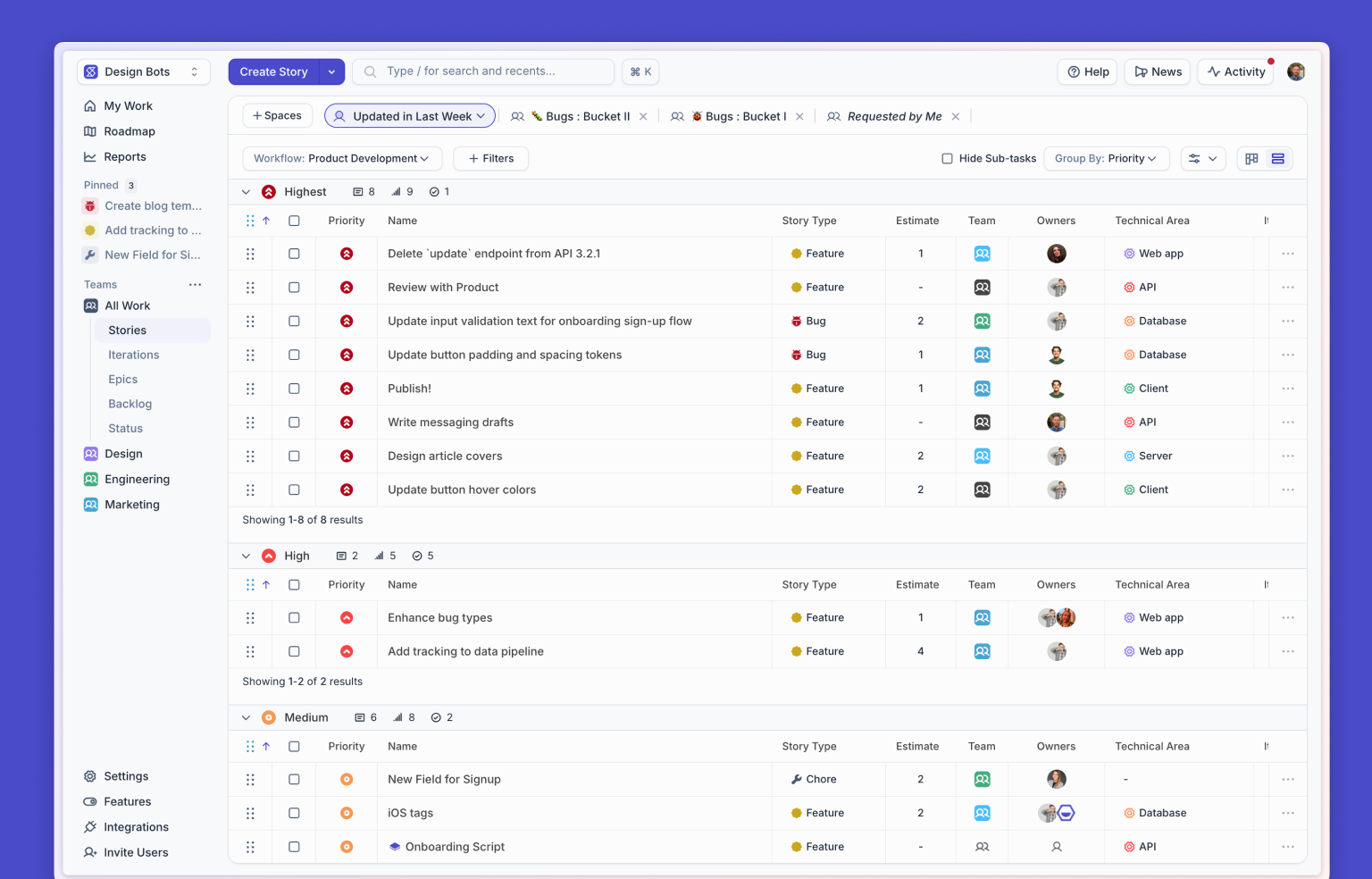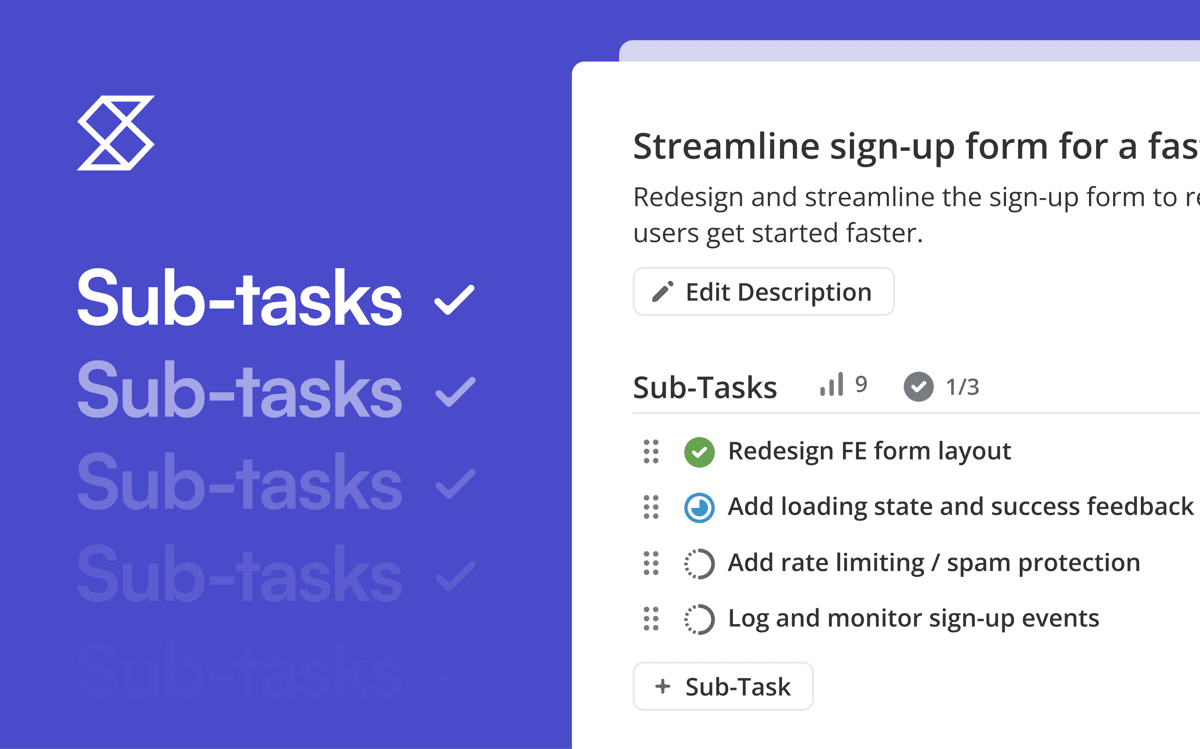The latest update to the Shortcut API V3 enables users to update a Story's external links and to also find all Stories associated with a given external link.
What's new?
- Renamed external_tickets to external_links
- Use the external_links parameter on POST / PUT Story
- New public endpoint GET external_link/stories which lets you find all stories associated with an external_link
Find Externally Linked Stories using the Shortcut API
A new public endpoint was created: GET api/v3/external-link/stories . If you provide an external_link parameter, this endpoint will return all story-public-ids that have this external link.
Use this endpoint to stay organized. You can find the Stories with a specific External Link. An example of how useful this can be: use it to find all the Stories that are linked to a particular Zendesk ticket, helping you identify duplicate issues across multiple Stories.
Update a Story's External Links, too
You can now add/remove external_links on stories via PUT api/v3/stories/{story-public-id} with the external_links parameter.
Please keep the following things in mind:
- These are set based operations. In order to add a new link, the payload must contain all existing links plus the new link.
- Remove one or more links by omitting only those links from the external_links parameter
- Remove all links by providing an empty array to external_links
External Tickets parameter will be deprecated on April 30, 2021
We're deprecating the old external_tickets parameter on April 30, 2021. Please update your API calls if you are currently using external_tickets when creating Stories.
Want some ideas on how to use the Shortcut API? Check out this webinar to learn how Francesco Crippa, VP of Engineering at Rollbar, uses our API to build a custom Cycle Time Report.
If you have any questions about this update, be sure to check out our API documentation, our Help Center, or reach out to our support team at support@clubhouse.io

















%20(788%20x%20492%20px)%20(1).png)
.png)

